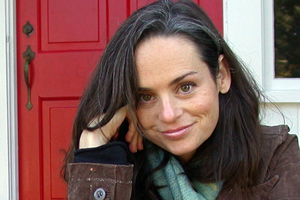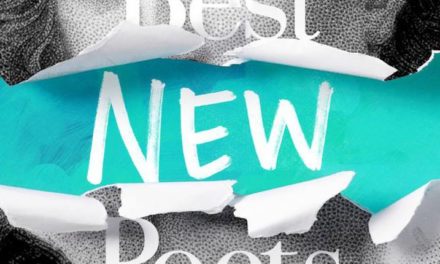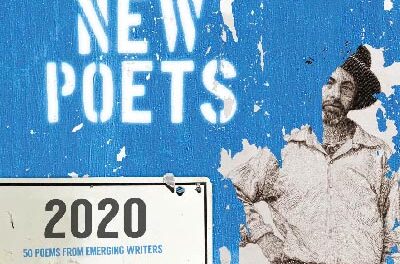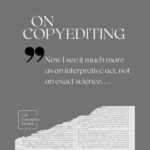We are exceptionally thrilled to congratulate three of our contributors whose poems (all from Issue 7.2) were chosen by Mark Doty for the Best American Poetry 2012!
Julianna Baggott, “For Furious Nursing Baby”
James Kimbrell, “How to Tie a Knot”
Dean Rader, “Self-Portrait as Dido to Aeneas”
Greatest congratulations to them!
Below, we’ve posted some comments they’ve made about their prize-winning poems, to whet your appetite for the collection, which will be available in September. If you can’t wait that long, you can order a copy of Issue 7.2 or any other back issue here (other than Issue 2.2, which died a watery death in our storage room years ago).
Julianna Baggott: Look, I’m charged with this particular poem being selected. Its title is “For Furious Nursing Baby.” There’s always a lot of conversation among women poets about writing on the subject of motherhood. I came to  these discussions late—I wrote my first collection fairly isolated from the larger poetry community. And so I was dismayed by the idea that women poets—in quiet discussions among themselves—noted that they really wouldn’t or shouldn’t or couldn’t write about motherhood—for fear of being seen as … what? Weak? Writing about those flimsy women’s issues … I was dismayed, too, because I’d already done it. My first collection is titled This Country of Mothers. I thought that the women poets fearing backlash or, worse, having their work ignored were wrong. But over time I saw it happen—in reviews and in comment boxes. I read a review that called a memoir about giving a child up for adoption at 16 “womb gazing” (the memoir is by Karen Sayler McElmurray—and fantastic); I saw comments that claimed a certain female poet was “milking” her motherhood for poems. Is this said of Pinsky’s poems about jazz? No. And so this feels good. A vindication. Maybe those days are finally, mercifully passing us by. I’d like to think so.
these discussions late—I wrote my first collection fairly isolated from the larger poetry community. And so I was dismayed by the idea that women poets—in quiet discussions among themselves—noted that they really wouldn’t or shouldn’t or couldn’t write about motherhood—for fear of being seen as … what? Weak? Writing about those flimsy women’s issues … I was dismayed, too, because I’d already done it. My first collection is titled This Country of Mothers. I thought that the women poets fearing backlash or, worse, having their work ignored were wrong. But over time I saw it happen—in reviews and in comment boxes. I read a review that called a memoir about giving a child up for adoption at 16 “womb gazing” (the memoir is by Karen Sayler McElmurray—and fantastic); I saw comments that claimed a certain female poet was “milking” her motherhood for poems. Is this said of Pinsky’s poems about jazz? No. And so this feels good. A vindication. Maybe those days are finally, mercifully passing us by. I’d like to think so.
 James Kimbrell: I began “How to Tie a Knot” several years ago during a brief stay on St. George Island, not far from my home here in Tallahassee. I could only afford to stay there during winter, when the island is largely empty but for some die-hard fisherman and a few misguided German tourists. I wanted to write a poem grounded in a very real situation that gave voice to a more or less spiritual dilemma without simplification and, especially, without resolution. A line or so from the last section of Robert Duncan’s gorgeous poem “In the South” makes a cameo, but mostly what we have here are the musings of someone who is busily acting out a desert-island scenario in which half the day is spent searching for a poem while the other half is spent loosing bait. Amen.
James Kimbrell: I began “How to Tie a Knot” several years ago during a brief stay on St. George Island, not far from my home here in Tallahassee. I could only afford to stay there during winter, when the island is largely empty but for some die-hard fisherman and a few misguided German tourists. I wanted to write a poem grounded in a very real situation that gave voice to a more or less spiritual dilemma without simplification and, especially, without resolution. A line or so from the last section of Robert Duncan’s gorgeous poem “In the South” makes a cameo, but mostly what we have here are the musings of someone who is busily acting out a desert-island scenario in which half the day is spent searching for a poem while the other half is spent loosing bait. Amen.
Dean Rader, on “Self-Portrait as Dido to Aeneas”: My book Works & Days poses a lot of questions about identity. One of the ways it does this is through self portraits that are not traditional portraits of  the individual self but rather the self figured through a series of dialogues between other people like Hesiod and Dorothea Lange, Frog and Toad, Michael Jackson and Robert Hayden, and as is the case with this poem, Dido and Aeneas (which is the most shamelessly earnest of the bunch). So, all that is going on thematically, as they say, while formally, I wanted to create something lush and maybe even sensuous. I hoped couplets would, of course, connote a couple and coupling, and I hoped the long lines might suggest the lengths we go to for love (or despair) as well as how long love (or despair) stretches. I also just really like Dido, and I wanted a version of the story where she makes him doubt every future decision, where she gets her say, where it’s her words (not his deeds) we remember.
the individual self but rather the self figured through a series of dialogues between other people like Hesiod and Dorothea Lange, Frog and Toad, Michael Jackson and Robert Hayden, and as is the case with this poem, Dido and Aeneas (which is the most shamelessly earnest of the bunch). So, all that is going on thematically, as they say, while formally, I wanted to create something lush and maybe even sensuous. I hoped couplets would, of course, connote a couple and coupling, and I hoped the long lines might suggest the lengths we go to for love (or despair) as well as how long love (or despair) stretches. I also just really like Dido, and I wanted a version of the story where she makes him doubt every future decision, where she gets her say, where it’s her words (not his deeds) we remember.











